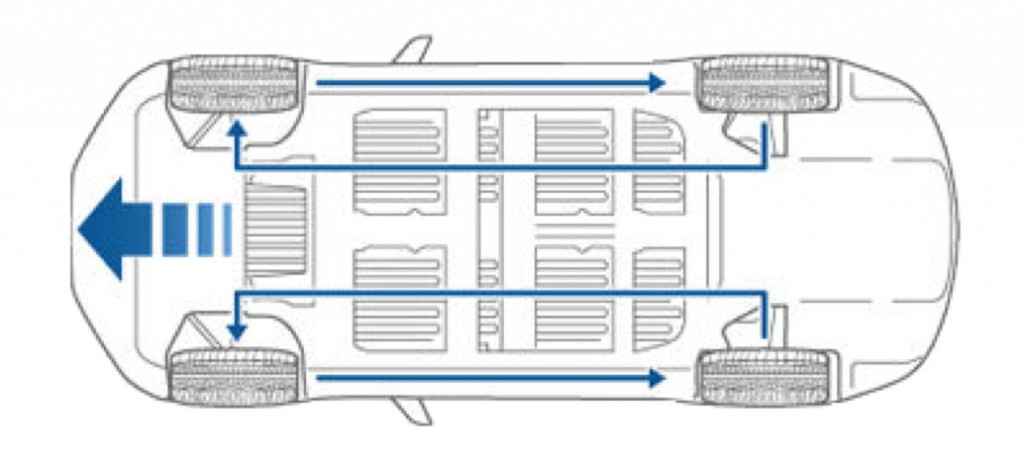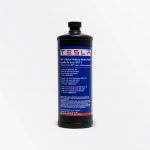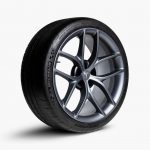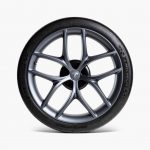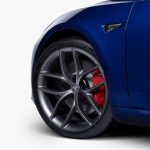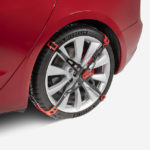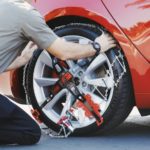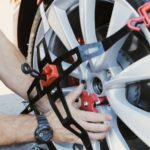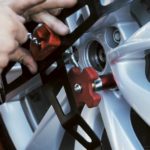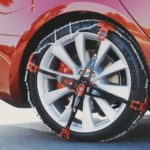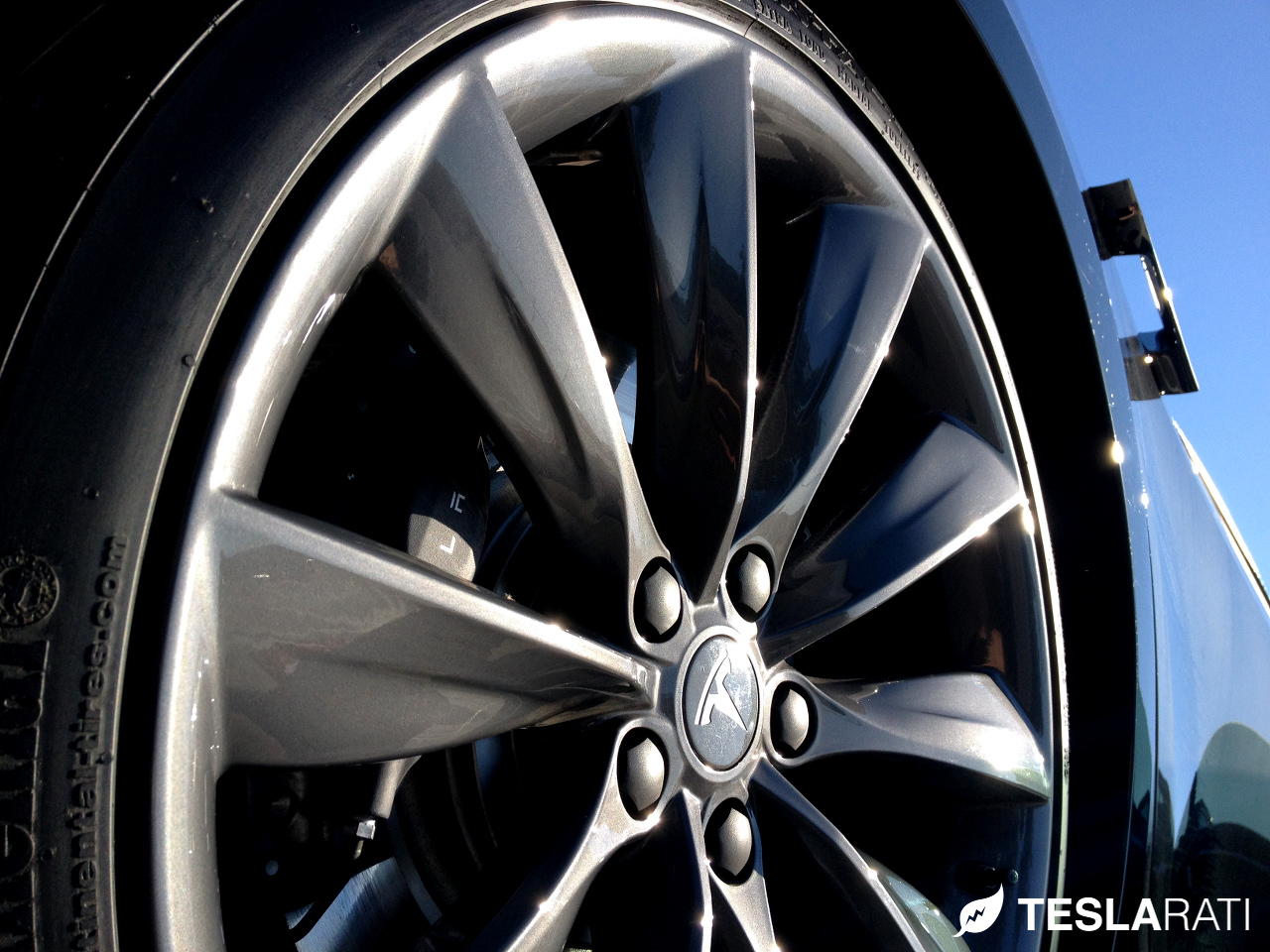

Aftermarket Wheels
Tesla Model S Tire Rotation and Tire Care Tips
Tesla Model S tire rotation and care tips that can help improve mileage and maximize the life of your tires.
One of the most widely discussed topics among Model S owners is the aggressive wheel alignment setting from the factory. The Tesla Model S has world-class handling that rivals the best performance vehicles, but having this award-winning handling performance comes at the expense of tire longevity.
Wheel alignment is broken down into three major angles of orientation; camber, caster, and toe. These components are fundamental to preserving handling performance and tire tread life, but finding the perfect balance between these dimensions can be a challenge.
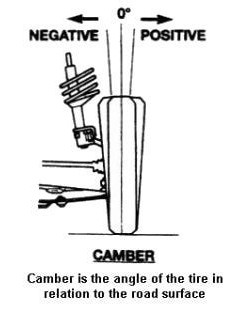 The camber angle (degree of difference between the wheels vertical alignment perpendicular to the road) on the Model S is set to an aggressive -2 degrees (factoring in the margin of error) as outlined in the factory wheel alignment chart below. If a wheel is perfectly perpendicular to the surface of contact, its camber would be 0 degrees, but in the case of the Model S, the top of the rear tires are tilted inwards as a way to increase handling characteristics. Heavy cornering would yield more surface contact between tire and road, thereby improving grip.
The camber angle (degree of difference between the wheels vertical alignment perpendicular to the road) on the Model S is set to an aggressive -2 degrees (factoring in the margin of error) as outlined in the factory wheel alignment chart below. If a wheel is perfectly perpendicular to the surface of contact, its camber would be 0 degrees, but in the case of the Model S, the top of the rear tires are tilted inwards as a way to increase handling characteristics. Heavy cornering would yield more surface contact between tire and road, thereby improving grip.
However, during straight-line acceleration and everyday driving, negative camber reduces surface contact between tire and road – the net effect being a decrease in straight-line performance and additional pressure on the inner tire, which could lead to uneven wear.
Tesla Model S Tire Rotation
Tesla Motors suggests rotating tires every 5,000 miles (8,000 km) and performing an annual wheel alignment. However, many Model S owners have had no ill effects with delaying tire rotation until the 6,000 – 7,000-mile mark.
NOTE: Tire rotation pattern not applicable to Performance Plus Models due to the size difference between the front and rear wheel/tire combination.
Tire Specifications
| Tire Type | Location | Size |
| 19″ wheels (85 kWh vehicles): Michelin Primacy MXM4 | All | P245/45R19 98V |
| 19″ wheels (60 kWh vehicles): Standard – Goodyear Eagle RS-A2 Optional – Michelin Primacy MXM4 | All | P245/45R19 98V |
| 21″ wheels on standard vehicles: Continental ExtremeContact DW | All | P245/35R21 96Y |
| 21″ wheels on Performance Plus (P85+) vehicles: Michelin Pilot Sport PS2 | Front Rear | P245/35R21 96Y P265/35R21 101Y |
Tips for Maximizing Tire Life
- Regularly inspect the tire tread and sidewalls for signs of abnormal distortion (bulges), cuts or severe tire wear
- Look for tire tread wear indicators which start to appear at the surface of the tread pattern
Related: - Routine tire rotation every 5 – 7k miles
- Keep tires properly inflated (reference the “Tire and Loading Information” label inside the door sill).
- Annual wheel alignment check
- Avoid hitting potholes and curbs
- Avoid frequent fast turning and heavy braking
- Avoid hard acceleration
Tesla Model S Wheel Alignment Values
| Location | Air Suspension | Coil Suspension | ||
| Front | Rear | Front | Rear | |
| Camber | -0.75 +/- 0.35 | -1.75 +/- 0.35 | -.53 +/- 0.35 | -1.55 +/- 0.35 |
| Camber Split | -0.00 +/- 0.20 | -0.00 +/- 0.50 | -0.00 +/- 0.20 | -0.00 +/- 0.50 |
| Caster | 4.00 +/- 0.50 | n/a | 3.70 +/- 0.50 | n/a |
| Caster Split | 0.00 +/- 0.20 | n/a | 0.00 +/- 0.20 | n/a |
| Single Wheel Toe | OUT 0.05 OUT 0.15 (limit) IN 0.05 (limit) | IN 0.20 +/- 0.05 | IN 0.02 OUT 0.08 (limit) IN 0.12 (limit) | IN 0.185 +/- 0.05 |
| Thrust Angle | n/a | 0.00 +/- 0.30 | n/a | 0.00 +/- 0.30 |
| Suspension Bolt Height (at design) | 213.5 +/- 5 mm | Standard models: 144 +/- 5 mm Performance Plus: 151 +/- 5 mm | 230 mm (nominal) | 158 mm (nominal) |
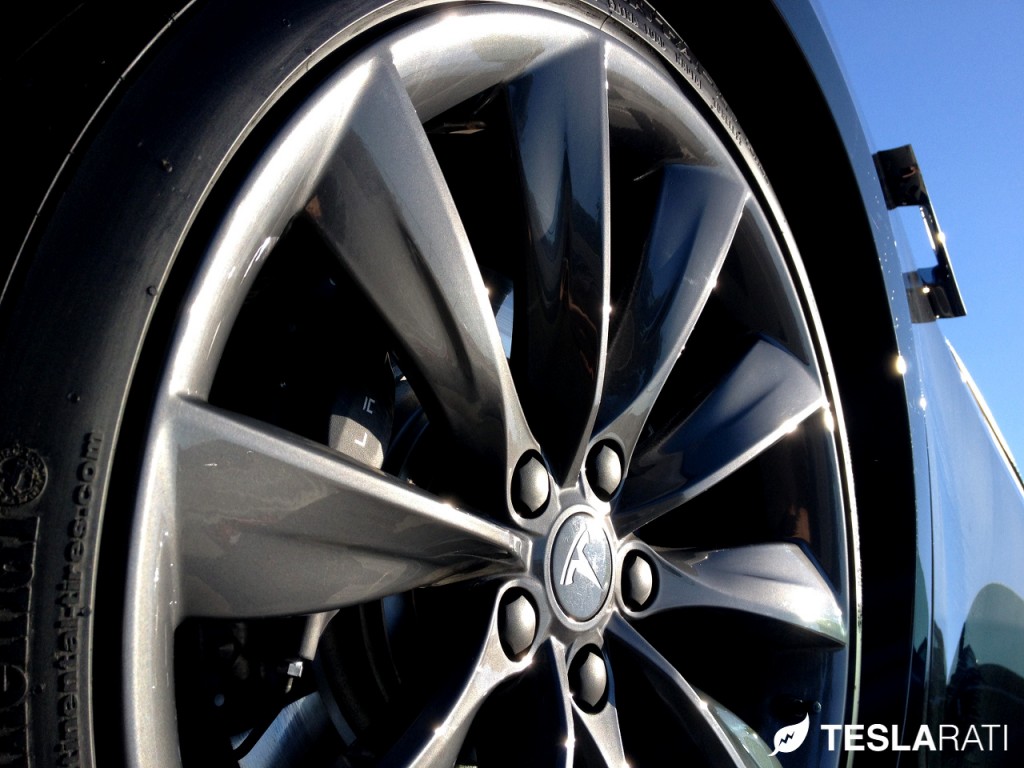

Aftermarket Wheels
Pirelli unveils its first-ever replacement tire for EVs: the All Season Plus with Elect marking
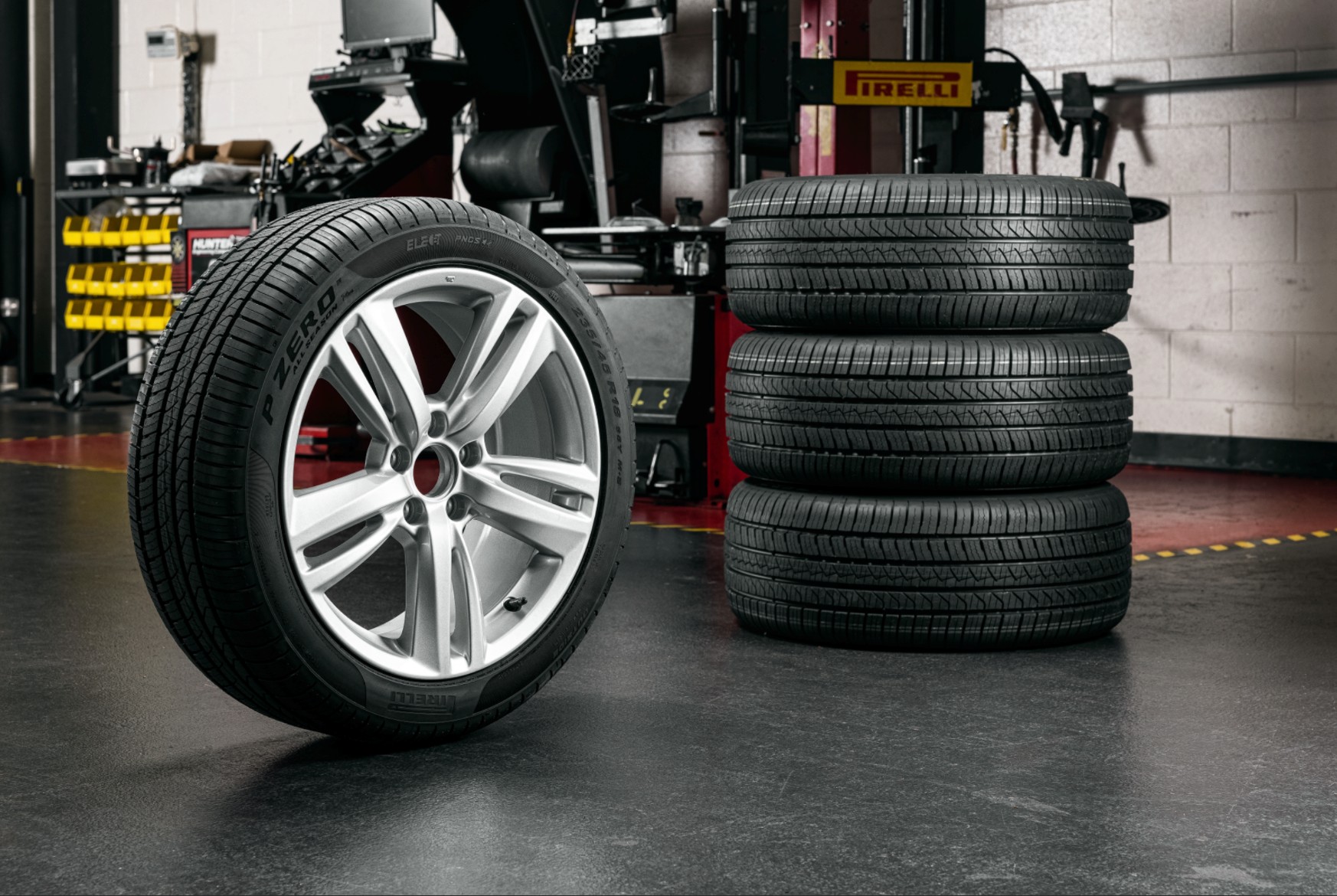
Pirelli, the Italian tire maker, announced today the introduction in North America of its first-ever replacement tire for electric vehicles: the P Zero All Season Plus with Elect Marking.
The Elect marking on Pirelli’s tires indicates several distinct advantages. First, the tire has low rolling resistance, which increases driving range and reduces energy consumption, making stops at electric vehicle chargers less frequent. When coupled with a high-range vehicle, like the Lucid Air Dream Edition or Tesla Model S All-Wheel Drive, the Pirelli Elect series decreases road contact, making the vehicles more efficient. When non-Elect P Zero All Season Plus tires have been fitted on vehicles, the Pirelli product has shown a reduction of rolling resistance by 15 percent, translating to direct improvement of the EV battery life cycle.
One of the most important and distinct advantages is also the reduction of road noise, creating a more peaceful a quiet experience in the EV’s cabin. In electric vehicles, road noise is more noticeable as the lack of a loud combustion engine, which drowns out these noises in a gas-powered car, provides more noise within the cabin. This was a main focus of Tesla for several years, as many consumers had stated road noise had gone to nearly intolerable levels. Tesla eventually worked with tire manufacturers for insulated rubber and made changes with its build processes to alleviate some of the cabin noise complaints.
Road noise won’t be a concern for those who utilize the Pirelli All Season Plus, as it features the company’s PNCS, or “Pirelli Noise Cancelling System.” Pirelli developed this technology to reduce interior noise thanks to a sound-absorbing material applied to the inside of the circumferential wall. It offers improved driving comfort, which is another feature appreciated by EV drivers. Tires equipped with PNCS have shown a 5 percent reduction in cabin noise versus the leading OEM competitor.
Pirelli’s new All Season Plus replacement tire, especially for EVs! (Credit: Pirelli)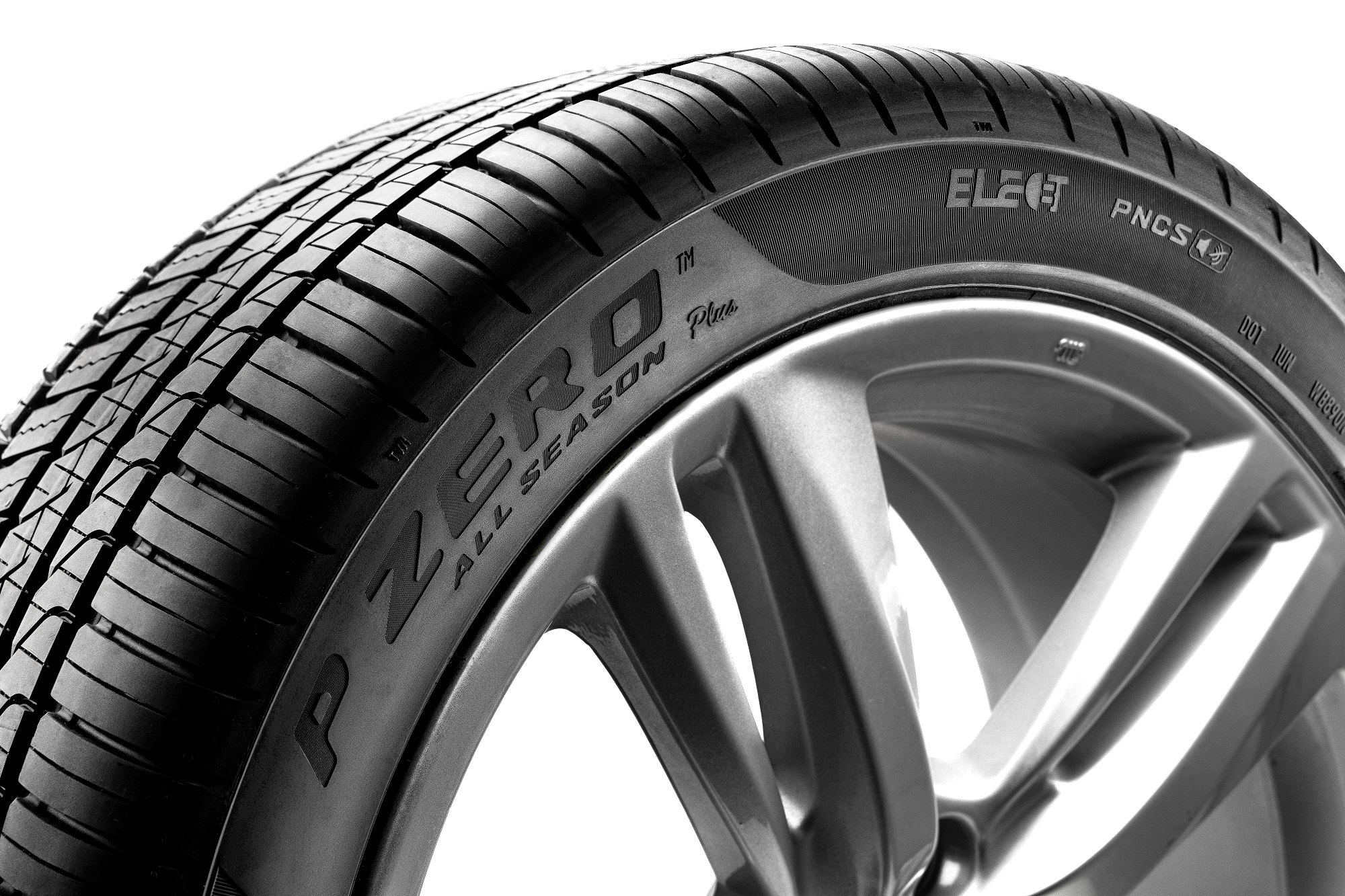
Another incredible advantage of Pirelli’s Elect tires is the immediate grip it provides for EVs, helping support the notoriously fast acceleration of electric powertrains. Along with the traction control and launch grip advantages, Pirelli’s tires support the weight of a battery-powered vehicle, the company said.
Pirelli continues to develop new tires and technology for EVs, especially as the automotive industry continues to show a massive transition to more sustainable powertrains. Pirelli was the first tire manufacturer to homologate a dedicated technology for EVs. It also has the highest number of homologations of tires for electric vehicles.
“Developing a tire specifically for electric vehicles requires a number of considerations you do not encounter when working with internal combustion engines,” Ian Coke, Chief Technical Officer at Pirelli North America, said. “Electric vehicles are heavier, have more powerful and faster acceleration off the line, and require lower rolling resistance.”
Pirelli developed a new compound formulation that increases abrasion resistance of the tire, which compensates for the high torque and increased weight, which EVs both have. The tire is built to offer “long-lasting performance in every condition,” the company said.
The new P Zero All Season Plus Elect will fit some of the most popular EV high-performance models and will be available from 18 to 20 inches. In addition to the clear EV vehicle benefits, the new P Zero All Season Plus Elect comes with a 50,000-mile limited treadwear warranty.
I’d love to hear from you! If you have any comments, concerns, or questions, please email me at joey@teslarati.com. You can also reach me on Twitter @KlenderJoey, or if you have news tips, you can email us at tips@teslarati.com.
Aftermarket Wheels
Tesla launches Model 3 Track Package with ‘Zero-G’ wheels and race-focused brake mods
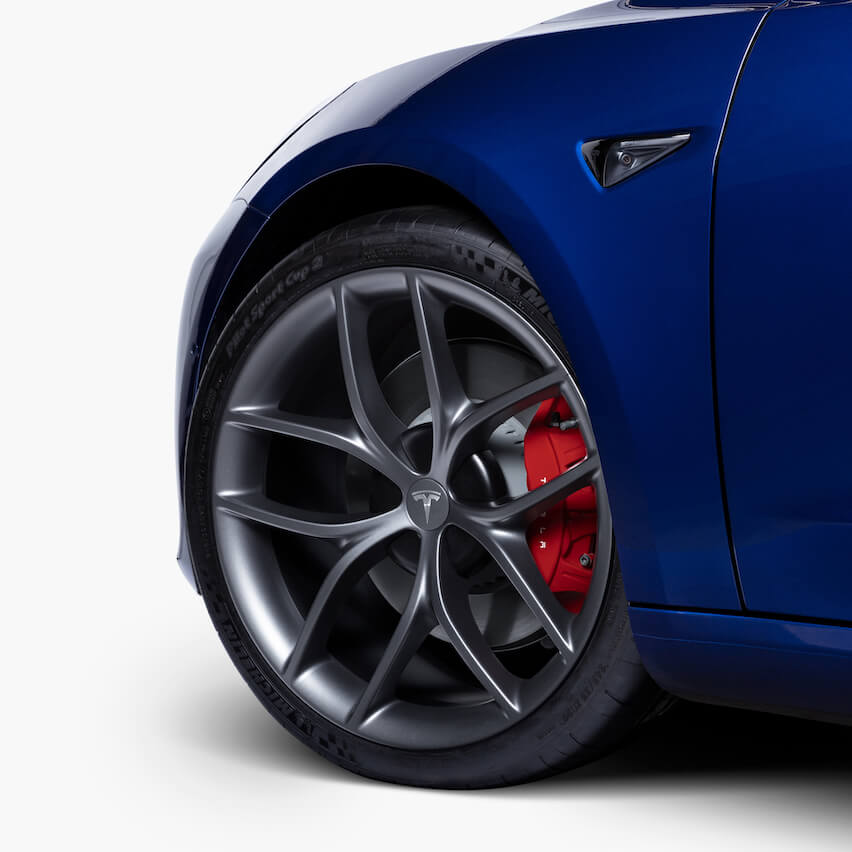
Tesla has launched a new Model 3 Track Package for racing enthusiasts looking to maximize track performance of their all-electric sedan with Zero-G Performance wheels and race-focused brake and tire modifications.
The new performance package is being offered for the Tesla Model 3 Performance variant at $5,500 and includes stickier Michelin Pilot Sport Cup 2 tires that are popular among track junkies, high-performance brake pads and racing brake fluid.
“Optimize the track performance of your Performance Upgrade Model 3. Track Package is a complete hardware package designed to give you maximum cornering force, braking performance and high-speed stability for the best lap times,” reads the description on Tesla’s online Shop for the upgrade.
Tesla Model 3 Track Package Includes:
- 4 x 20″ X 9″ Zero-G Performance wheels
- 4 x Tesla logo center caps
- 20 x Lug nut covers
- 4 x 245/35ZR20 XL Michelin Pilot Sport Cup 2 tires
- 4 x tire pressure sensors
- 1 x front and rear high-performance brake pads
- 1 x track-focused brake fluid
Included in the Model 3 track package are a set of 20-inch diameter “Zero-G Performance Wheels” in a “square set up”, whereby all four wheels and tires are of equal size. The upgraded Zero-G wheels in a 20″ x 9″ set up are 0.5 inches wider than the factory 20″ x 8.5″ Model 3 Sport Wheels. Combined with wider and stickier rubber from the Michelin Pilot Sport Cup 2 tires, drivers are able to negotiate more aggressive cornering speeds in their Model 3 Performance as well as higher entry speeds.
While Tesla’s single-pedal driving capability through regenerative braking means that a driver rarely needs to use the brakes, the demands of track driving at high speeds into turns on a race circuit require the heavy use of brakes, often leading to brake fade due to higher brake temperatures.
Tesla’s Model 3 Track Package includes high-performance front and rear brake pads that are designed to withstand more aggressive braking and higher temperatures, paired with Tesla-branded, track-focused brake fluid.
Model 3 Performance owners looking to purchase the $5,500 track package can coordinate shipping and installation with their local Tesla Service Center.
Shipments for the Model 3 Performance Track Pack is expected to begin in April 2020.
H/T @model3owners
Aftermarket Wheels
Tesla adds Model 3 snow chains for 20″ Performance wheels to online store
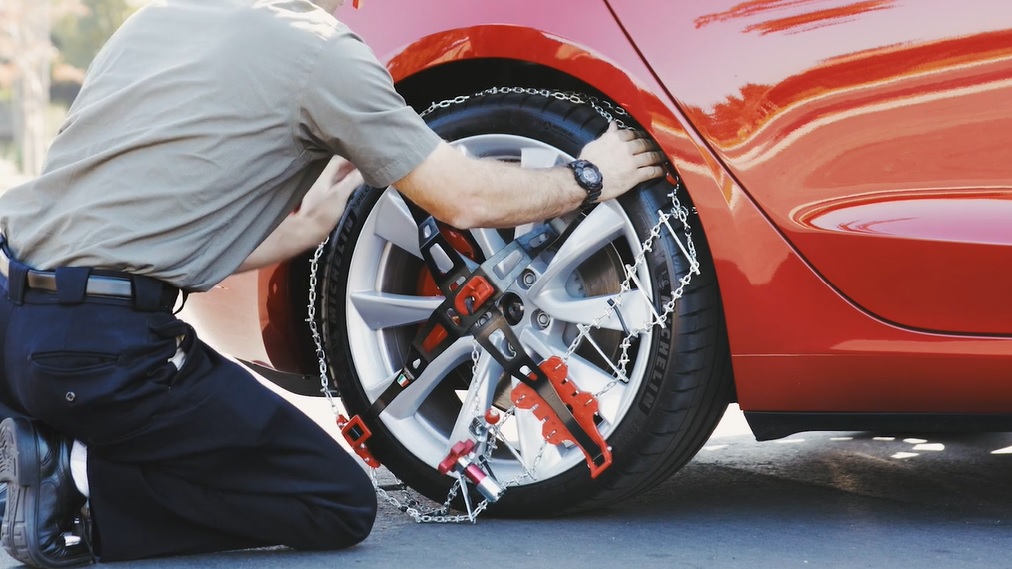
Tesla Model 3 snow chains for 20″ Performance wheels have been added to the company’s online store.
The Maggi Trak Sport 214 snow chain is a unique type of self-adjusting and easy-to-install chain that utilizes four clamps and one fixing point for installation. Rather than wrapping the chains around the inner portion of the tire, the outer wheel side of the drive wheels is used as the single fixing point over complex inner side attachments. Excellent traction and durability in snowy conditions are to be expected from the aftermarket addition. Previously, snow chains were only available for Model 3 with 19″ wheels in a dual motor and rear-wheel drive configuration and were produced by a different manufacturer.
Tesla’s store also notes that the Maggi Trak Sport chains are only approved for Model 3 Performance 20” wheels and Tesla-approved 235/35R20 tires. Additionally, they should only be installed on the rear wheels. For $290, the snow chain package includes a nylon protective bag, one pair of chains, and an installation guide, and delivery is anticipated to take 2-3 weeks.
- Tesla now offers snow chains for Model 3 AWD tires. | Credit: Tesla Motors
- Tesla now offers snow chains for Model 3 AWD tires. | Credit: Tesla Motors
- Tesla now offers snow chains for Model 3 AWD tires. | Credit: Tesla Motors
- Tesla now offers snow chains for Model 3 AWD tires. | Credit: Tesla Motors
According to the manufacturer, the self-adjusting nature of the Maggi Trek snow chains ensures a perfect grip between the chain and the tire tread. The gripping unit design has a smaller profile that won’t compromise the minimal space between the outer tire and inner wheel well, resulting in a safe and quiet drive. The Maggi Trak Sport snow chain system is also available for the Model S.
Watch the video below for how to install the Model 3 AWD Maggi trek snow chains, as demonstrated on a Model S:
-

 News2 weeks ago
News2 weeks agoTesla aiming to produce first “legion” of Optimus robots this 2025
-

 Elon Musk1 week ago
Elon Musk1 week agoTesla CEO Elon Musk’s simple message to vandals
-
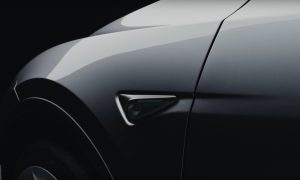
 Elon Musk2 weeks ago
Elon Musk2 weeks agoElon Musk confirms two measures Tesla is taking to fight vandalism
-

 News2 weeks ago
News2 weeks agoTesla’s Giga Berlin director responds to anti-Musk criticism
-

 Elon Musk7 days ago
Elon Musk7 days agoTesla vandal who lit Las Vegas repair center on fire arrested
-
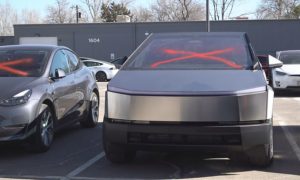
 Elon Musk2 weeks ago
Elon Musk2 weeks agoTesla owners doxxed by controversial anti-DOGE website in clear intimidation tactic
-

 Elon Musk1 week ago
Elon Musk1 week agoTesla vehicles hit by ATV, suspect caught by Sentry Mode
-

 Elon Musk1 week ago
Elon Musk1 week agoElon Musk clarifies Trump tariff effect on Tesla: “The cost impact is not trivial”
